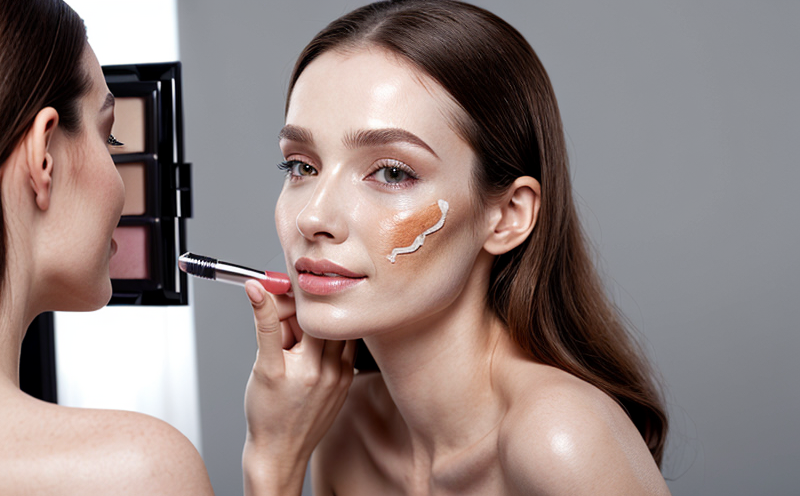Firmness Enhancement Testing in Skincare Products
The assessment of firmness enhancement in skincare products is critical to ensuring that cosmetic formulations meet consumer expectations and deliver the desired effects. This service encompasses a range of tests designed to evaluate the structural integrity, elasticity, and overall firmness of skincare products through standardized methods. Understanding how these properties contribute to the product’s performance is essential for quality managers, compliance officers, R&D engineers, and procurement teams.
The testing process involves several steps that ensure accurate results. Specimen preparation includes selecting appropriate sample sizes and ensuring they are representative of the entire batch being tested. Instruments such as rheometers and viscometers play a crucial role in measuring firmness by applying controlled forces or deformations to observe changes in shape or size. The choice of instrument depends on the specific type of product being evaluated, whether it is an emulsion, gel, cream, or lotion.
Accurate data collection is vital for reliable testing outcomes. Factors like temperature control and consistent pressure application must be maintained throughout the process to prevent any external variables from affecting results. Compliance officers rely on this service to ensure adherence to international standards such as ISO 28390:2016, which provides guidelines for determining rheological properties of cosmetic products.
For R&D engineers, firmness testing offers valuable insights into formulation adjustments needed to enhance product performance. By identifying the optimal range of ingredients and their concentrations that achieve desired firmness levels, they can iterate on formulations until achieving the best possible outcome. Procurement teams benefit from this service by validating supplier claims regarding the quality and consistency of raw materials used in producing these products.
The importance of rigorous testing cannot be overstated when it comes to maintaining brand reputation and regulatory compliance. Non-compliance with relevant regulations can lead to product recalls, damage to consumer trust, and potential legal issues. Therefore, investing in thorough firmness enhancement testing ensures long-term success for cosmetic manufacturers.
Scope and Methodology
| Test Parameter | Description | Method Used |
|---|---|---|
| Firmness Measurement | Assessment of the structural integrity and elasticity of the product. | Rheometric Analysis |
| Consistency Evaluation | Determination of how well the product maintains its shape under stress or strain. | Gel Strength Testing |
| Viscosity Determination | Measurement of a fluid's resistance to gradual deformation by shear or tensile stress. | Capillary Viscometry |
| Temperature Effects | Evaluation of changes in firmness due to temperature variations. | Dynamic Mechanical Analysis (DMA) |
The scope of firmness enhancement testing includes both qualitative and quantitative assessments. Qualitative evaluations focus on observing visible changes in the product's appearance, texture, or behavior during application. Quantitative measurements provide numerical data that can be compared against set benchmarks or industry averages.
Standardized procedures ensure consistency across tests conducted by different laboratories around the world. These protocols are based on internationally recognized standards like ISO 28390:2016 and ASTM D5794, which guide researchers in selecting appropriate methods for measuring firmness according to product type.
Industry Applications
In the skincare industry, firmness enhancement is a key factor in determining the effectiveness of various products. For instance, lotions and creams need sufficient firmness to apply smoothly while maintaining their form during use. This ensures that consumers receive consistent application experience every time they use the product.
For anti-aging serums, achieving the right level of firmness helps prolong their staying power on skin surfaces without becoming too runny or heavy. Such attributes contribute positively towards customer satisfaction and loyalty among users who seek effective skincare solutions tailored specifically for their needs.
Incorporating advanced technology into these tests allows manufacturers to stay ahead in innovation by continuously refining formulas based on feedback from rigorous testing processes. By leveraging cutting-edge equipment such as high-resolution cameras, microscopes, and automated systems capable of capturing minute details about texture changes over time, labs can provide more precise results than ever before.
International Acceptance and Recognition
The international acceptance and recognition of firmness enhancement testing in skincare products reflect its growing importance within the cosmetic industry. Regulatory bodies worldwide are increasingly focusing on ensuring that all cosmetic products meet stringent quality standards before reaching consumers.
In Europe, adherence to EN 15076 ensures consistent product performance across borders, while in North America, compliance with ASTM F854 helps maintain uniformity among producers and distributors. Similarly, Asia-Pacific countries like China adhere closely to GB/T 23951 guidelines when conducting similar tests.
Recognizing the significance of these standards, many leading brands incorporate firmness enhancement into their research and development processes. By doing so, they demonstrate commitment not only towards delivering superior products but also toward upholding global safety and efficacy requirements imposed by regulatory authorities.





